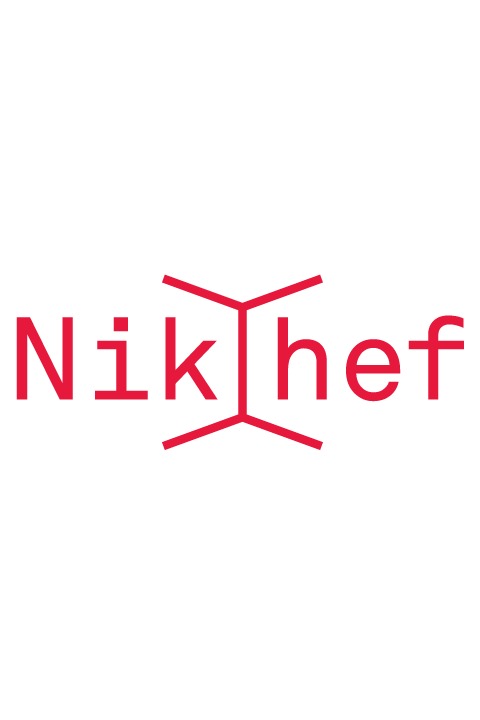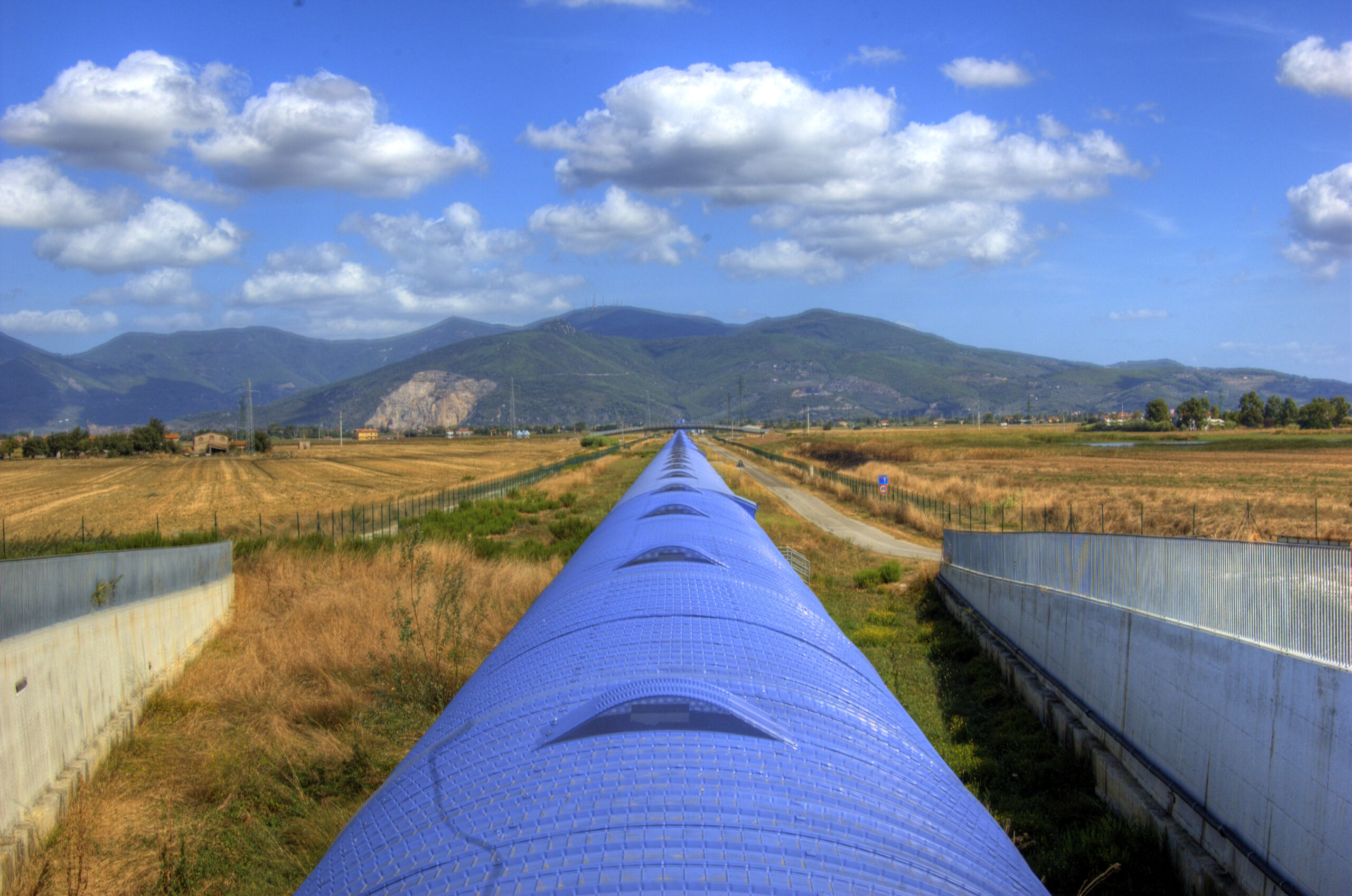Nikhef en Albert-Einstein-Institut tekenen samenwerkingsovereenkomst
– English follows Dutch –
Nikhef-persbericht
Vandaag hebben Nikhef en het Duitse Albert-Einstein-Institut in aanwezigheid van minister-president Mark Rutte een verklaring ondertekend om de wetenschappelijke en technologische samenwerking op het gebied van zwaartekrachtsgolvenonderzoek verder te versterken. Plan is ook om een gezamenlijke visie op een nieuwe (derde generatie) detector voor zwaartekrachtsgolven te ontwikkelen. De ondertekening vond plaats tijdens de Hannover Messe 2016, de grootste technologiebeurs ter wereld.
Op 11 februari dit jaar maakten wetenschappers bekend dat zij voor het eerst direct zwaartekrachtsgolven hadden gedetecteerd. Nederlandse wetenschappers waren nauw betrokken bij deze baanbrekende ontdekking en hebben cruciale bijdragen geleverd aan de validatie van de meting, de data-analyse van deze zwaartekrachtsgolven, en werkten mee aan de astrofysische interpretatie. Sindsdien is dit onderzoeksgebied in een stroomversnelling terecht gekomen. Terwijl het zwaartekrachtsgolvenonderzoek onverminderd doorgaat met de huidige infrastructuur, is het dringend noodzakelijk om alvast een visie te creëren voor een nieuwe generatie van detectoren.
Eén van de meest veelbelovende toekomstige projecten is de ‘Einstein Telescoop’ (ET), een detector die veel nauwkeuriger kan meten dan de huidige instrumenten. Het doel van de nu getekende samenwerkingsovereenkomst tussen Nikhef en het Duitse Albert-Einstein-Institut (AEI) is om te komen tot een gezamenlijke visie op het zwaartekrachtsgolvenonderzoek en op de ontwikkeling van nieuwe detectoren. Een belangrijk onderdeel van de samenwerking zal zijn om gezamenlijk onderzoek te doen naar een mogelijke locatie voor een toekomstige detector in Europa. Dit zal onder andere in de vorm van haalbaarheidsstudies gebeuren, waarbij het Duits-Nederlandse grensgebied in Zuid-Limburg en Nordrhein-Westfalen een te onderzoeken locatie is.
Nikhef-directeur Stan Bentvelsen is enthousiast: “Nikhef en AEI zijn beide zeer actieve spelers op het gebied van zwaartekrachtsgolvenonderzoek, met brede expertise in zowel instrumentatie als analyse en interpretatie van meetgegevens. Het bundelen van de Duits-Nederlandse krachten zal de gezamenlijke positie in dit onderzoeksgebied duidelijk versterken.”
Programmaleider Jo van den Brand is blij met de internationale steun: “De wereldwijde gemeenschap van wetenschappers op het gebied van zwaartekrachtsgolvenonderzoek ondersteunt dit initiatief om een gezamenlijke visie op een nieuwe generatie detector te ontwikkelen. Europese collega’s zijn bovendien betrokken via het Astroparticle Physics European Consortium (APPEC). Het is geweldig dat we nu zo snel door kunnen na de eerste detectie.”
Voor meer informatie kunt u contact opnemen met
Afdeling Wetenschapscommunicatie Nikhef
Vanessa Mexner – email – Tel 020 592 5075
Stan Bentvelsen
Directeur Nikhef
email – Tel 020 592 5001
Jo van den Brand
Programmaleider Nikhef, hoogleraar aan de Vrije Universiteit Amsterdam
email – Tel 020 592 2015
Beeld (high res) volgt.
——————————
Nikhef press release
Dutch-German impulse for gravitational wave research
Nikhef and Albert Einstein Institute sign cooperation agreement
Today, Nikhef (the Dutch National Institute for Subatomic Physics) and the German Albert-Einstein Institute have signed a declaration in the presence of Dutch Prime Minister Mark Rutte to strengthen scientific and technological cooperation in the area of gravitational wave research. They intend to develop a joint vision on new (third generation) detectors for gravitational waves. The signing took place during the Hannover Messe 2016, the world’s largest technology trade fair.
On 11 February 2016, scientists publically announced that they had directly detected gravitational waves for the first time. Dutch scientists were closely involved in this groundbreaking discovery and made vital contributions to validating the measurement, to the data analysis for these gravitational waves, and they collaborated on the astrophysical interpretation. Since then, this area of research has been undergoing rapid development. Whilst gravitational wave research continues unabated using the current infrastructure, there is an urgency to start creating a vision for a new generation of detectors.
One of the most promising projects is the ‘Einstein Telescope’ (ET), a detector which can make much more accurate measurements than the instruments currently in use. The purpose of the cooperation agreement signed by Nikhef and the German Albert Einstein Institute (AEI) today is to arrive at a joint vision on gravitational wave research and on the development of new detectors. Joint research into a possible location for a future detector in Europe will form a key part of the cooperation. One of the ways this will take place is in the form of feasibility studies, looking at sites in the Dutch-German border area in Zuid-Limburg and North Rhine Westphalia.
Nikhef director Stan Bentvelsen is enthusiastic about the collaboration: “Nikhef and AEI are both very active players in the area of gravitational wave research, with broad expertise in instrumentation, data analysis and physics interpretation. Joining the forces of these Dutch and German institutes will clearly strengthen our mutual position in this area of research.”
Programme leader Jo van den Brand is pleased with the international support: “The worldwide community of scientists in the area of gravitational wave research supports this initiative to develop a joint vision on a new generation detector. Furthermore, European colleagues are involved through the Astroparticle Physics European Consortium (APPEC). It is fantastic that we can go ahead so quickly after the first detection.”
For more information, please contact
Science Communications Department Nikhef
Vanessa Mexner – email – phone 020 592 5075
Stan Bentvelsen
Director Nikhef
email – phone 020 592 5001
Jo van den Brand
Programme leader Nikhef, professor at VU University Amsterdam
email – phone 020 592 2015

